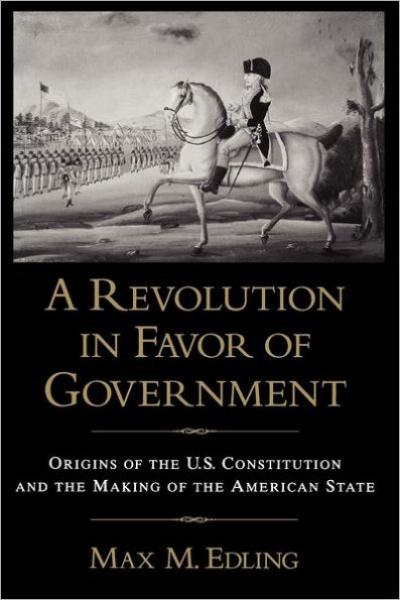Description
In this trenchant new interpretation of America's origins, Max Edling shows that the Federalists were primarily concerned with building a government that could act vigorously in defense of American interests. The Constitution transferred the powers of war-making and resource-extraction from the states to the national government, thereby creating a nation-state invested with all the important powers of Europe's eighteenth-century 'fiscal-military states.'A strong centralized government such as this, however, challenged the American people's deeply ingrained distrust of unduly concentrated authority. To secure the Constitution's adoption in the face of this inherent suspicion, the Federalists had to balance the formation of a powerful national government with the strong current of anti-statism in the American political tradition. They did so, Edling argues, by designing a government that would be powerful in times of crisis, but which would make only limited demands on the citizenry and have a sharply restricted presence in society. Taking advantage of a newly published letterpress edition of the constitutional debates, A Revolution in Favor of Government recovers a neglected strand of the Federalist argument, making a persuasive case for rethinking the formation of the federal American state.
A book of undoubted power and value--The Journal of American History
At the very least, Max M. Edling has written the most important book on the adoption of the United States Constitution to appear since Forrest McDonald refuted Charles Beard in We the People: The Economic Origins of the Constitution (1958).--Journal of the Early American Republic
Edling's book is a powerfully argued revisionist interpretation of the origins of the Constitution. More than anything else, it helps us better understand the constitutional sources of the gigantic fiscal-military state that the United States has become.--Gordon S. Wood, Alva O. Way University Professor and Professor of History, Brown University
Not only a pleasure to read but extremely informative and persuasively argued. I will never think about the U.S. Constitution in the old way again.--Daniel Walker Howe, author of What Hath God Wrought
A book of undoubted power and value--The Journal of American History
At the very least, Max M. Edling has written the most important book on the adoption of the United States Constitution to appear since Forrest McDonald refuted Charles Beard in We the People: The Economic Origins of the Constitution (1958).--Journal of the Early American Republic
Edling's book is a powerfully argued revisionist interpretation of the origins of the Constitution. More than anything else, it helps us better understand the constitutional sources of the gigantic fiscal-military state that the United States has become.--Gordon S. Wood, Alva O. Way University Professor and Professor of History, Brown University
Not only a pleasure to read but extremely informative and persuasively argued. I will never think about the U.S. Constitution in the old way again.--Daniel Walker Howe, author of What Hath God Wrought
Last updated on
Product Details
- Oxford University Press, Brand
- Jul 1, 2008 Pub Date:
- 0195374169 ISBN-10:
- 9780195374162 ISBN-13:
- 333 Pages
- 9.1 in * 6.1 in * 0.7 in Dimensions:
- 1 lb Weight:




